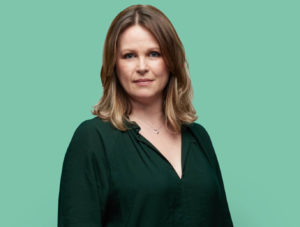Dan: Welcome to this week’s Boss to Boss podcast. In our interviews, we feature amazing sales and marketing minds doing imaginative things in often unimaginative markets, usually from the world of B2B.
This week we are joined by Owen Richards, founder of Air Marketing, a telesales and marketing agency that has seen astonishing growth. Now, for as long as I can remember, people have been talking about the death of telesales, so when you see an agency, like Air, leading with that service that has grown to over 75 people in just 5 years, and all in spite of a major pandemic, in my mind, that provides pretty compelling evidence that the art of the cold call is alive and well.
That said, it’s not a discipline in which I can pretend to have any great expertise, so I’ve been really looking forward to grilling Owen on exactly how a company should go about building a world-class telesales operation.
Owen, thank you so much for joining us.
Transcript
Dan: So just to kick-off then, many people have no real grasp – in my opinion – of what AI and machine learning- we’re just going to kick off with a nice and generic one, to begin with, so what would you describe as the top 3 traits of a great telesales expert in 2022?
Owen: Thanks for having me, firstly. Great question. There are a lot of traits you look for. I think the obvious one which will last forever is communication skills. I think you have to be a good communicator and you have to be good with people. And I don’t think that will ever go away. We might throw new things we’re looking for in there over the years, but I don’t think that one will ever be less important than anything else. I’d always probably default to that.
I think the obvious one which will last forever is communication skills. I think you have to be a good communicator and you have to be good with people. And I don’t think that will ever go away.
I think one of the things that I see missed a lot – particularly in the B2B space – is commercial acumen. I think telesales is typically associated with younger people or earlier stage career, and people who, you know, yeah, I guess lacking life experience, maybe, in some ways. And I do find that people that have got that experience – and I don’t necessarily mean in numbers of years – but been around a bit, travelled the world, commercial experience, taken the time to read some business books and understand a bit more outside of their world and that commercial knowledge and acumen that is very hard to tangibly measure, is often something that I can put my finger on and say that has really helped in that conversation or really helped to build rapport with senior decision-makers. I mean as a stakeholder, if somebody sounds like they know what they’re talking about, it’s a lot more enjoyable to talk to them.
So I think those two, without a doubt. And then, funnily enough, the third one for me that I always go back to is that sort of work ethic attitude thing. However, you want to categorise it. The job is hard, right? It’s not getting any easier. And if you are happily floating around sending 20 well-constructed emails a day thinking that’s outreach and prospecting, versus somebody who is prepared to have 20 conversations a day, make 100 calls a day or whatever it might take to get you there, that you accept that I’m going to get rejected and I’m not hiding behind email, I’m putting myself out there. So, yeah, I think that that attitude and work ethic counts a lot and it is something you can’t create in somebody. And I think that gets you a long way in any role.
Dan: There are a couple of things I want to touch on there that you alluded to. So you talked about the need for that kind of commercial acumen. I Just wonder, does it help if there is a degree of sector focus?
Owen: So to liken it to something like acting: if you are a professional actor and you’re going to play the role of an inmate in a prison, you would probably go and spend time in prison to understand what that looks like, feels like and sounds like. And then they would pull that into the role that they do. I don’t think that’s any difference with sales. If I’m going to spend time talking to business owners, the more I know about what it looks like and feels like to be a business owner, the better.
If I’m going to spend time talking to business owners, the more I know about what it looks like and feels like to be a business owner, the better… And I think that word relevant is coming into sales more and more now. It’s about being relevant to the person you’re talking to, because we get so many phone calls, so many people selling to us, so many emails, the ones that we respond to are the ones that are most relevant to us at that point in time.
I think you can draw that right down to things like the sector: if I know that I’m talking to construction businesses, whatever experience I’ve got in and around construction is going to come across in that conversation, whether by design or by accident, and I’m going to understand – or be more likely to understand – the objections that they give me, the questions that they ask and the reasons why they might be asking them. That allows me to be more relevant. And I think that word relevant is coming into sales more and more now. It’s about being relevant to the person you’re talking to, because we get so many phone calls, so many people selling to us, so many emails, the ones that we respond to are the ones that are most relevant to us at that point in time.
Dan: Absolutely. So it seems to me that people have been talking about the imminent death of telesales since I started in business, and probably quite a long time before then, I suspect. So when’s that moment actually going to arrive?
Owen: Yeah, certainly they’ve been saying it since I started as well. So look, I think my answer is that there would have to be some things that happen for it to arrive and those things are things that I don’t foresee in my lifetime, but who knows. When humans stop being trusted with decision-making capabilities, at that point it, will end, because the whole time humans are buying at reasonable budget sizes, the whole time emotion plays a role in the sales process and the buying process, the whole time human logic plays a role in that, that whole time you need a human in the sales process.
Having a verbal human conversation is the most efficient way to communicate with somebody. Is it getting harder? Yeah, absolutely. Is it going to end? No, I don’t think so. I don’t think we will see telesales die.
Whether you look at social, email or video prospecting, all of these things are fairly one way – with the exception of social but there’s a delay between them and it’s in text, and we all know how much communication gets lost in written form – a lot of the time, there is nothing as effective as a human conversation. So having a verbal human conversation is the most efficient way to communicate with somebody. Is it getting harder? Yeah, absolutely. Is it going to end? No, I don’t think so. I don’t think we will see telesales die. It gets harder, without a doubt, but the whole time that there are no other channels that you can scale like you can scale that, and the whole time humans are the people that make a decision as to whether to talk to you about your services or not, human conversation is going to be required and there is nothing more effective than the phone for having a human conversation at volume.
So yeah, I don’t think it’s going to die. Not in our lifetime.
Dan: I don’t know if you’d agree with this, but I almost think that the less expected an activity becomes, the greater its impact. And it’s one of my favourite topics: costly signalling. Certain activities work precisely because of their inefficiency. Do you think this applies to telesales?
Owen: Yeah, and unless a tool more effective than the phone for that comes along – maybe it’s a chip in our arm that allows us to talk – well, I don’t think the phone is going to be replaced. It’s something that is evolving with us, and so the whole time that they do that, we will all carry a phone. Every single one of us carries a phone and are going to continue to do so. It’ll always play a role.
No strategy that has one element in it is successful, and if it is, it’s only for a period of time and it breaks sooner or later. So other channels alongside it make absolute sense but it will continue to play a mix in B2B outbound prospecting.
Don’t get me wrong, ten years ago there were operations that were prospecting only using the phone. I’m now doing so using email, using social alongside that and I have never been somebody who’s said, “We’re a one channel play”. I don’t believe in one channel plays. I don’t think it makes sense to just do outbound telesales and say that will solve all your problems or just do PPC or just the social selling. No strategy that has one element in it is successful, and if it is, it’s only for a period of time and it breaks sooner or later. So other channels alongside it make absolute sense but it will continue to play a mix in B2B outbound prospecting. And there’s a reason why there are 10,000 SDR roles out there in London alone, open vacancies, because people need people out there prospecting to grow their business and sell and they recognise that it’s a great opportunity to do that.
And I’ll just say one last thing: these things are cyclic, so you know, ten years ago everyone would say, “Oh, ditch it. Let’s move to digital.” And then they’ve realised that there are other challenges with digital. It’s not going to fix it all.
Dan: So presumably, even if you find somebody that satisfies all those earlier criteria you described, they’re still going to struggle if either the product they’re representing is absolute garbage or there’s no marketing support, as you’ve alluded to there. You still need that multi-channel mix.
So what are the key things that a business needs to do in order to make the lives of people within your telesales team as straightforward and as effective as possible?
Owen:
Yeah, good question. So I’ll caveat all of this with it depends on how success is measured at the telesales. So if it’s just booking meetings, the reality is a good BD or SDR should be able to book meetings, regardless of the quality of the product, because actually, if they’re getting into the product details, they’re probably going too far. That’s one of the mistakes I see in people’s sales cycles now. They’re trying to get top of funnel conversations all the way through the sales cycle in one conversation. I’ll caveat all of that with the belief that top of funnel prospecting should be there to book a meeting for somebody who’s far more qualified in the right environment with time set aside that’s committed and dedicated to it – and I think there needs to be some qualification.
Look, a great brand makes a great difference. So a really simple piece of data that will help support that argument: we run one campaign and we have two people sponsoring that campaign, one is a technology company and they are part-funded by 1 of their partners and 1 of their partners is a very big brand. We ran an A/B test using both of their brands. So, “Hey, it’s so-and-so so calling from X”, and in the case where it was the unknown channel partner, we saw less than half the number of calls connecting with the decision-maker. So we were able to have more than 2 times the number of conversations with decision-makers in the same resource time with the same people doing it just because people were more likely to answer the phone or say yes to taking that call when their receptionist mentioned the brand. And the conversion to meeting from those conversations, again, was more than double. Nothing else was changed, just the name of the company, and that shows people trust the brand or they don’t trust the brand.
If you look dynamic and innovative and you’ve got fresh content and you’re up to date and you’ve got a personality, people are more likely to engage with you.
You’re running a lot faster with the same resource because brand has played an important part there, so you cannot underestimate the power of brand, which mid and enterprise-level is obviously going to be important, but even at SME level. They might not know you, but when you’re talking to them, they’ll just search up your website, and if it looks like it was built in 1974 and it’s still in Times New Roman, then people are going to judge you for that. They’re going to form an opinion. They’re going to see a certain type of company. If you look dynamic and innovative and you’ve got fresh content and you’re up to date and you’ve got a personality, people are more likely to engage with you.
So I think brand and that falls into online. It falls into word of mouth and what people say about you. All of that. Content. All of those things make a huge difference and then I think the other piece is environment, culture and sales leadership. There are too many companies that will hire BD, sales reps, whatever you want to call them, plonk them in a corner and expect them to make 100 calls today and they’ll be fine. They’ll book us meetings. Don’t give them the cultural support, the right environment, the atmosphere or the right leadership to be successful. Sales is still something that there’s no qualification for, so people fall into it and then we’re getting junior reps trained with bad habits. So I think as organisations, we need to give them the right environment, the right sort of culture to sit in. We need to give them the right support and training and development and invest in people and value the role and understand that quite a lot of the time, that role can be the difference to you hitting target or not this year. So there’s a lot there that you can do to support them.
Dan: So you mentioned there again about the mix of channels, the role of brand etc. Obviously one of the unusual things about your business is that you cover the whole spectrum, which I absolutely love. But if tomorrow you had to say, you know what, we’ve got to put all of our resources into just two channels, what would those two channels be?
Owen: So social, and if I needed to pull that back to a particular platform, it would be LinkedIn. So LinkedIn is the single biggest revenue-generating channel for us every year, and has been for the last two or three years, because we’ve got a brand, people see our content and they get in touch with us. And they are much closer to being buyer ready. And then also the phone, because we practice what we preach. And we know we can scale it up, scale it down, have control over it reasonably well. I would say then, closely followed by PPC.
PPC is an exceptionally effective channel… You can’t build a brand overnight. You can’t build an outbound channel overnight. But you can run PPC ads and start to get inbound traffic coming in.
So for us, PPC is an exceptionally effective channel. It’s become less important over the years as we’ve matured and our brand has had a bigger impact and our outbound program has matured, but in the early days of the business, that was my first marketing strategy because it was immediate. You can’t build a brand overnight. You can’t build an outbound channel overnight. But you can run PPC ads and start to get inbound traffic coming in. So two years ago. that might have been in there but now those 2 are the top 2 for me.
Dan: That’s awesome. And you mentioned LinkedIn there, to what degree are the individual reps getting involved in developing their own profiles and joining it up with their own telesales activity? Is it just like another touchpoint in that individual relationship they have with somebody or is it really just at a brand level and certain senior individuals, like yourself, are driving that?
Owen: I guess it’s like anything. There are certainly focus points across the business and I’m a big believer in personal brand over company brand. So most of our inbound inquiries come from somebody in our leadership team coming to us. And people do engage with our content, we’ve done a lot of A/B testing across posts as well but content that goes out on a personal channel always gets a higher engagement rate and more views and more clicks. So you need both, but that personal piece is important at a sales rep level.
I’m a big believer in personal brand over company brand…You need both, but that personal piece is important at a sales rep level.
And it’s amazing how quickly you can build your network with people who have spoken to you once but are happy to connect. Maybe only 30 to 50% will accept that within a sort of seven-day period, but what you’re doing is growing your network with people who are relevant, people who might not be buyer ready today, but might be in the future.
Dan: I just wonder, when you’re bringing in new salespeople, and as you say, often these individuals might be fairly early on in their career, if the product being sold is technical and the buyer journey is fairly complex, how do you get these people up to speed and make an impact as quickly as possible?
Owen: Yeah, I think it links back to my point earlier which was around looking at what’s right in the sales process, not just what somebody is capable of. So for me, if I’ve got a 25 k year BDE who’s got 1-year experience fresh out of university, do I want them having technical conversations about the product with a CTO of a scale-up business? Or do I want my account executive or pre-sale technical team or somebody else who can actually answer the questions credibly? I think the answer to that is pretty obvious.
It links back to my point earlier which was around looking at what’s right in the sales process, not just what somebody is capable of.
Now what you don’t want is those really expensive technical people making cold calls, because that’s highly ineffective, very expensive. The same is true the other way around, though. So what we need to do is find that sensible handover point. So at what point are we going to say this conversation’s become better for person B over person A.
Dan: Yep, no, that makes absolute sense. And presumably, it’s easier if there’s quite a clear message that SDR is delivering? Is that important? That sort of clarity of that initial message?
Owen: Well this is about giving people the structure of conversation that they should be having. So you don’t go into a cold call not knowing what you’re going to say, how you’re going to say it. You practice it. You rehearse it, just like you would any other job that you do freshly. You don’t go into anything without practising your trade if you’re going to be exceptionally good at it. So structure and conversation are important.
You don’t go into anything without practising your trade if you’re going to be exceptionally good at it. So structure and conversation are important.
I think in answer to your question, the data tells us 2 things: if we can keep somebody on the phone for 6 minutes, they’re twice as likely to – give or take – say yes to something. Equally though when you think about it, if I structure my sales conversation – and people do it in all sorts of different ways – so I say to you, “We help you with that and we hope that solves that problem and this is effectively my offering and I’m putting it on the table to talk you about.” And you start to go, “Okay, can you tell me a bit about this or how does that work?” That tells me there’s a level of curiosity, because why would you ask questions if it wasn’t relevant to you or of interest? You would just say no. You’d just be upfront because why would you waste your time. So my view is, if I’ve clearly communicated how I can help you, what it is I do, what the problems are that I can solve for you and that is relevant and you begin to ask me questions, that is a very good buying signal. That is a very good sign that you want to know more about this – whether you’ve admitted it to yourself or you realise that yourself as a buyer doesn’t matter. But you are curious to some degree. It’s my job to make sure that you’re curious enough when I hang up that phone, you’re not going to go missing. You’re going to turn up to the next meeting.
If I’ve clearly communicated how I can help you, what it is I do, what the problems are that I can solve for you and that is relevant and you begin to ask me questions, that is a very good buying signal.
The kinda successful conversation should be somewhere between a minimum of 3 to 4 minutes, if it’s really quick, 10 to 12 minutes max. Somewhere in there. If you start to get to 15 minutes long and it’s happened naturally and organically, fine. But hopefully, that’s happened after you’ve already booked the meeting and you’ve closed and you’ve just carried on talking, because otherwise, you’re investing all that time to then try and close in a meeting and they say no and you think well that wasn’t very efficient.
Dan: So the last question then. I’m a strong believer that every marketer should gain some experience in sales. I just wonder, is there a particular function that you think that sales should look at and think: we could actually learn a hell of a lot from a bit of experience in that function?
Owen: There are two. One is the obvious one and then one that’s less obvious. The obvious one is the other way around: marketing. Because sales has become more about copywriting and social, we’ve got to write our own content as salespeople now. People receive written social or email content in a different way from the way that they do verbal content.
And the second is finance. So I find – particularly if you’re selling into financial decision-makers or CEOs, business owners or operational people – if you ask them how business is performing, almost always their leading indicator will be numbers. “How’s your business done this year?” “Well oh, revenue’s gone up”, or whatever. Even if their job is technical. So if you can understand finance, even to a basic level, that really helps you to interpret what it might mean for a business. That’s what they care about. They don’t care about whether that bit of that project was done today, they care about the end result. So I think finance. We all run a business because of finance, we want to financially succeed at an individual level and as a business and everything else. That’s just the outcome at the end. Everything else is just part of the journey. So finance for me is something that I think gets ignored and missed too much but can actually play a really important role in commercial conversation.
So if you can understand finance, even to a basic level, that really helps you to interpret what it might mean for a business. That’s what they care about.
Dan:
As you say, that’s ultimately what it’s about, right? Everything else is just a vehicle for getting there.
Look, Owen, thank you so much. I knew I was going to enjoy this. I Always think the best interviews are those I almost forget are an interview and I’m just asking the questions I really want to ask. So, yeah, I really want to thank you for your time today.
Owen: Pleasure, thanks for having me.




